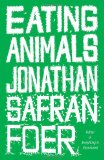Summary | Excerpt | Reading Guide | Reviews | Beyond the Book | Readalikes | Genres & Themes | Author Bio

Critics' Opinion:
Readers' Opinion:
First Published:
Nov 2009, 352 pages
Paperback:
Sep 2010, 368 pages
 Book Reviewed by:
Book Reviewed by:
Cindy Anderson
Buy This Book
And George isn't a kumbaya being who wants only to give and receive affection. As it turns out, she is a major pain in the ass an awful lot of the time. She compulsively pleasures herself in front of guests, eats my shoes and my son's toys, is monomaniacally obsessed with squirrel genocide, has the savant-like ability to find her way between the camera lens and the subject of every photo taken in her vicinity, lunges at skateboarders and Hasids, humiliates menstruating women (and is the worst nightmare of menstruating Hasids), backs her flatulent ass into the least interested person in the room digs up the freshly planted, scratches the newly bought, licks the about-to-be-served, and occasionally exacts revenge (for what? ) by shitting in the house.
Our various struggles - to communicate, to recognize and accommodate each other's desires, simply to coexist - force me to encounter and interact with something, or rather someone, entirely other. George can respond to a handful of words (and choose to ignore a slightly larger handful), but our relationship takes place almost entirely outside of language. She seems to have thoughts and emotions. Sometimes I think I understand them, but often I don't.
Like a photograph, she cannot say what she lets me see. She is an embodied secret. And I must be a photograph to her. Just last night, I looked up from my reading to find George staring at me from across the room. "When did you come in here?" I asked. She lowered her eyes and lumbered away from me, down the hall - not a silhouette so much as a kind of negative space, a form cut out of the domesticity. Despite our patterns, which are more regular than anything I share with another person, she still feels unpredictable to me. And despite our closeness, I am occasionally thrilled, and even a bit scared, by the foreignness of her. Having a child greatly exacerbated this, as there was absolutely no guarantee - beyond the one I felt absolutely - that she wouldn't maul the baby.
The list of our differences could fill a book, but like me, George fears pain, seeks pleasure, and craves not just food and play, but companionship. I don't need to know the details of her moods and preferences to know that she has them. Our psychologies are not the same or similar, but each of us has a perspective, a way of processing and experiencing the world that is intrinsic and unique. I wouldn't eat George, because she's mine. But why wouldn't I eat a dog I'd never met? Or more to the point, what justification might I have for sparing dogs but eating other animals?
A Case for Eating Dogs
Despite the fact that it's perfectly legal in forty-four states, eating "man's best friend" is as taboo as a man eating his best friend. Even the most enthusiastic carnivores won't eat dogs. TV guy and sometimes cooker Gordon Ramsay can get pretty macho with baby animals when doing publicity for something he's selling, but you'll never see a puppy peeking out of one of his pots. And though he once said he'd electrocute his children if they became vegetarian, I wonder what his response would be if they poached the family pooch.
Dogs are wonderful, and in many ways unique. But they are remarkably unremarkable in their intellectual and experiential capacities. Pigs are every bit as intelligent and feeling, by any sensible definition of the words. They can't hop into the back of a Volvo, but they can fetch, run and play, be mischievous, and reciprocate affection. So why don't they get to curl up by the fire? Why can't they at least be spared being tossed on the fire?
Our taboo against dog eating says something about dogs and a great deal about us.
The French, who love their dogs, sometimes eat their horses.
The Spanish, who love their horses, sometimes eat their cows.
The Indians, who love their cows, sometimes eat their dogs.
While written in a much different context, George Orwell's words (from Animal Farm ) apply here: "All animals are equal, but some animals are more equal than others." The protective emphasis is not a law of nature; it comes from the stories we tell about nature.
From Eating Animals by Jonathan Safran Foer. Published by Little, Brown and Company. Used by permission of the publisher. All rights reserved.





The House on Biscayne Bay
by Chanel Cleeton
As death stalks a gothic mansion in Miami, the lives of two women intertwine as the past and present collide.

The Flower Sisters
by Michelle Collins Anderson
From the new Fannie Flagg of the Ozarks, a richly-woven story of family, forgiveness, and reinvention.

The Funeral Cryer by Wenyan Lu
Debut novelist Wenyan Lu brings us this witty yet profound story about one woman's midlife reawakening in contemporary rural China.
Your guide toexceptional books
BookBrowse seeks out and recommends the best in contemporary fiction and nonfiction—books that not only engage and entertain but also deepen our understanding of ourselves and the world around us.